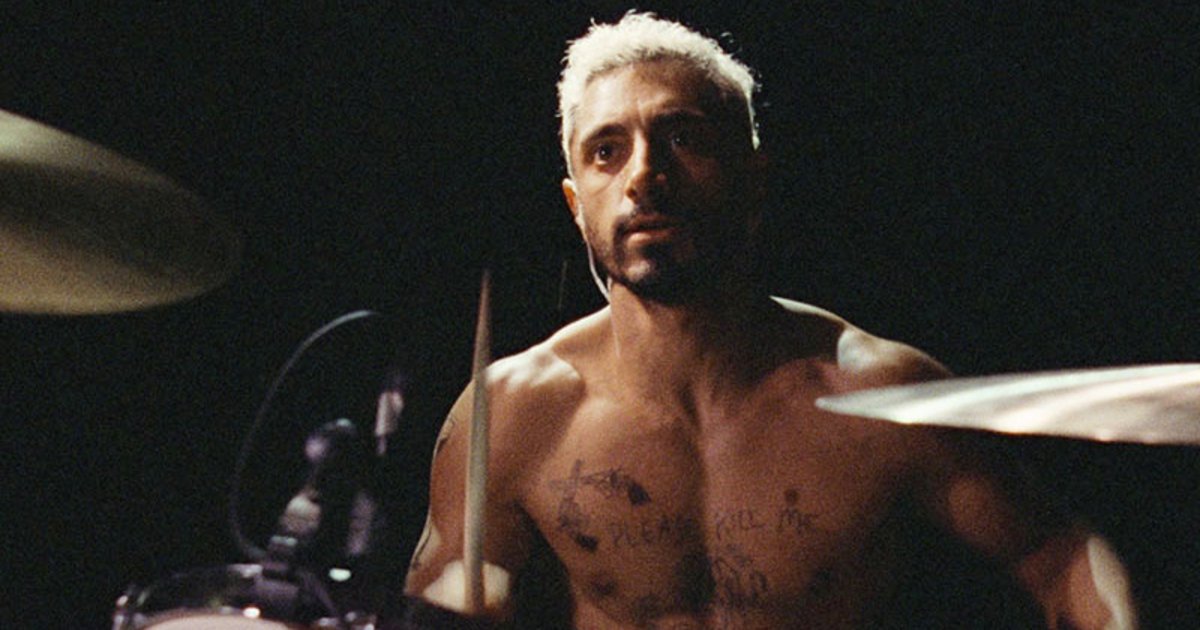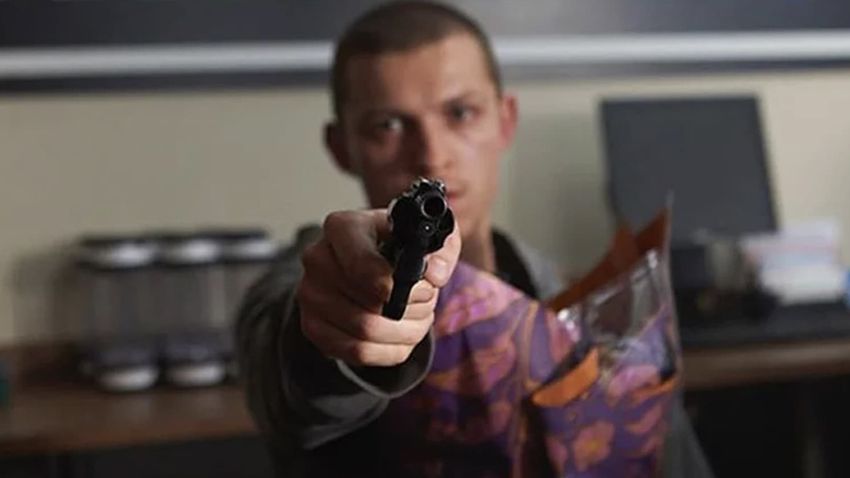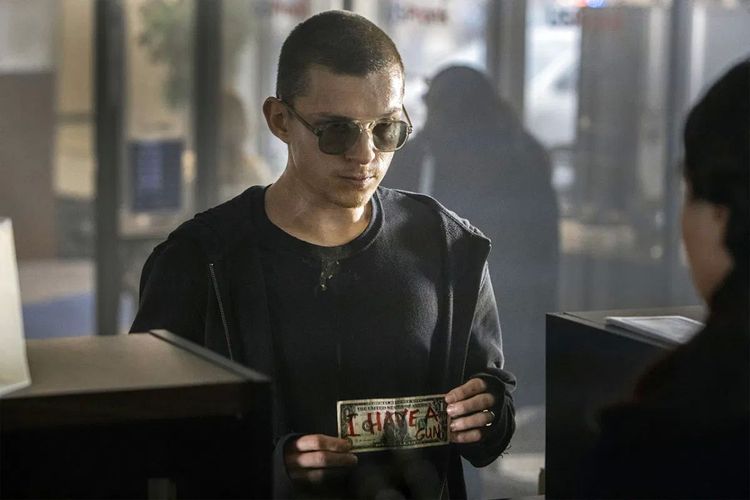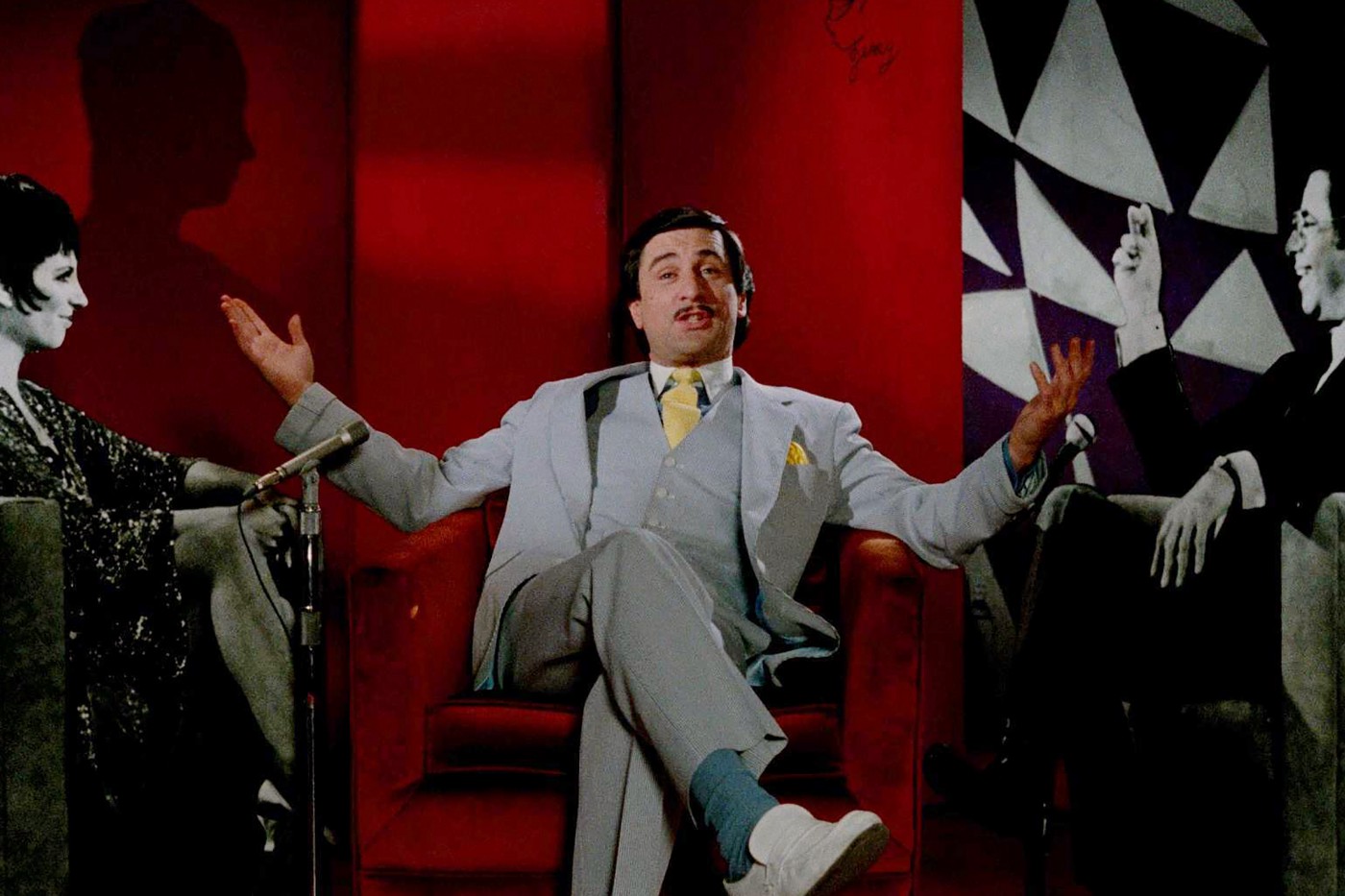Screaming in Silence: ‘Sound of Metal’ Review and Analysis
*this review contains spoilers*
Sound of Metal is Darius Marder’s (co-writer of The Place Beyond The Pines) tremendous directorial debut. It is a film that pulls the rug from under you and tells the story of Ruben (Riz Ahmed), a recovering drug addict and heavy-metal drummer who begins to lose his hearing.
The film is worthy of merit for many of its endeavours, particularly with its approach from the outset. Ahmed, who lassoed the spotlight with his terrific performance in HBO’s The Night Of, has raised the bar even higher in this latest project. He catapults himself wholeheartedly into his job; spending six months learning to play the drums and becoming well versed in American Sign Language, even opting to communicate with the director and co-stars in this manner and often wearing ‘auditory blockers’, saying that “I couldn’t hear anything, including the sound of my own voice”. Furthermore, his co-stars at the programme where he undergoes a profound character transformation, are members of the deaf community. Paul Raci, who plays Joe the programme founder, grew up with deaf parents and is a prominent figure in the community. This moral approach to the material pays off nobly, with a sensitive and sincere execution.
Witnessing Ruben as he tries to grapple with a world that rapidly and silently melts around him is terrifyingly tangible, jarring and upsetting. The cast (although particular applause to Ahmed) deliver an electrifying, powerhouse of performances that has our undivided attention and makes the film spark, cementing its incredibly intimate and tender depiction of his world-shattering crisis. The sound mixing adds a viscerally potent dimension to the experience. By splitting the film from the perspective of a world full of crazy sounds and his muffled, silenced world as he tries to process his grief, we are left with a tragically isolating insight and downright frightening realism.
The script excels in its incredibly profound character study and thematic philosophies, speaking volumes. It focuses on a troubled, volatile character who is haunted by his demons, calling him back to a life of heroin addiction, who eats, breathes and sleeps metal music but is then suddenly plunged into an icy world of silence and stillness. This razor-sharp radical transformation makes witnessing his hardship and internalising and rationalising of his plight both deeply devastating and harrowing. Ruben is tasked with getting up at 5am to be left alone with his thoughts, a pad of paper, a pen and no distractions. What results is a glimpse into his brittle split-personality, of his old self and his sober self, explosive yet extremely disciplined and earnest, as he is taken over by a tantrum, pummelling a donut into smithereens before putting it delicately back together, multiple times.
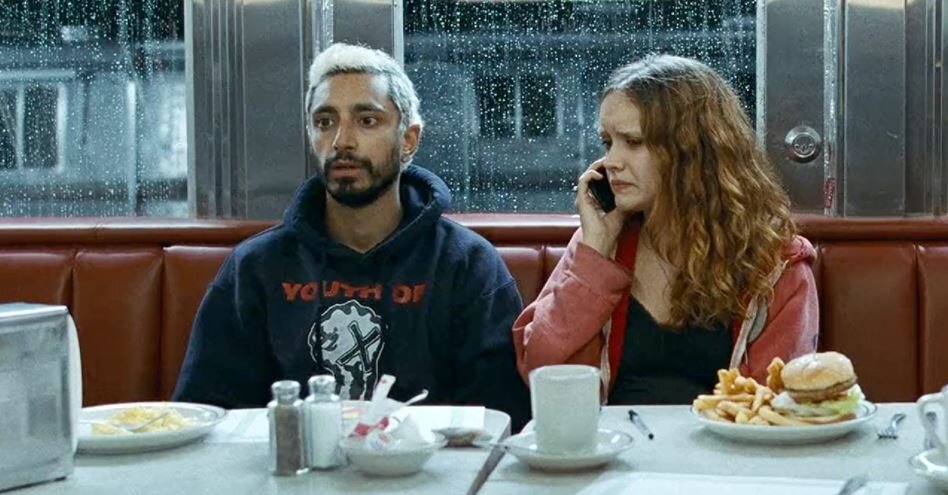
Marder executes a profound examination of a tormented soul and the concept of inner stillness. Even though Ruben’s life thrived on chaotic, loud music, we learn that by nature his spirit is soft but misdirected; he often starts his days making healthy smoothies and listening to French Jazz. During his reconciliation with his new world at the programme, we find him in a deep meditative state over a piano melody, integrating and connecting with his new family and generally, the happiest we have seen him. However, when he gets tugged back by his old life and sees a video of Lou (breaking the no-technology rule of the programme), his meditative reformation is intercepted and he invests in an implant that will get him back to not just a life of hearing but to his old life as well.
This feeds into an incredibly impactful scene where Ruben bids farewell to Joe saying that he has to “save his life” and that he can’t just “diddle around” and “have nothing”. Naturally, Joe is distraught by this insult saying that Ruben “looks and sounds like an addict”. This integrally powerful scene demonstrates how Ruben’s self-destructive ego pushes him away from achieving inner stillness, whilst hurting those around him, much like how he acted with his blaring, frenzied past life and how can’t make peace with himself. Ruben returns to the outside world to rekindle his relationship with Lou, to find that she has moved on, unshackled by her demons and has found her inner stillness.
This final act revelation is nothing short of tragic and pulls on the audience’s heartstrings when we learn with Ruben that after burning the bridge with his best shot at inner peace, he actually integrated better with his family at the programme, than when he forcefully tries to reintegrate back into the spoken world. Ruben justifies his exit by saying “that’s life, it just passes” and we truly feel for him because he hasn’t made peace with the fact that the world keeps spinning and as we see, it doesn’t wait for him. This leads to a strong symbolic bow as the film’s curtains close, showing Ruben pensively entranced by the ringing of a bell tower, before he decides to remove his hearing aid; back to silence.
Sound of Metal is the most genuine and raw story Hollywood has had to offer recently and deserves every ounce of praise. A film that screams in silence, and it should certainly not go unheard.
Image Credit: Substream Magazine
